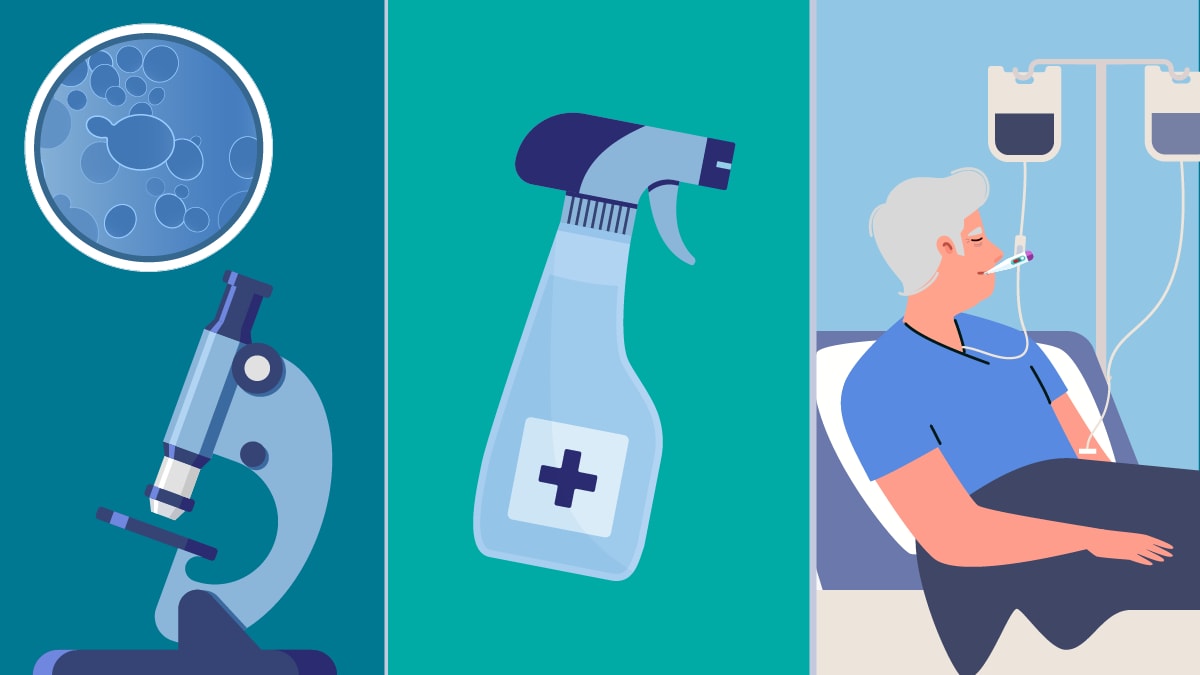Key points
- Candida auris (C. auris) also known as Candidozyma auris is a type of yeast that can cause severe illness and spread easily among very sick patients in healthcare facilities.
- Symptoms depend on the site of infection (i.e., bloodstream, wound, ears).
- C. auris is often resistant to antifungal medications.
- Learn about risks, spread, and prevention.

Overview
Candida auris (C. auris) also known as Candidozyma auris is a type of yeast that can cause severe illness and spread easily among very sick patients in healthcare facilities. C. auris can cause a range of infections from superficial (skin) infections to more severe, life-threatening infections, such as bloodstream infections.
C. auris is often resistant to antifungal medications, meaning the fungus develops the ability to defeat the drugs designed to kill it. That means the germs are not killed and continue to grow. Resistant infections can be difficult, and sometimes impossible, to treat.
Symptoms
C. auris can cause infection in different parts of the body like the blood, wounds, and ears. Symptoms of a C. auris infection depend on the location and severity of infection. Symptoms may be similar to symptoms of infections caused by bacteria like fever or chills. There is not a common set of symptoms specific for C. auris infections.

C. auris in or on the body without symptoms
Patients can have C. auris on their skin and other body area without having symptoms. Healthcare providers refer to this as 'colonization.' People who are colonized can spread C. auris onto to surfaces and objects around them and to other patients.
Risk factors
C. auris mostly affects patients with severe underlying medical conditions and those requiring complex medical care and invasive medical devices. Invasive medical devices are often necessary but create pathways for C. auris to get into the body. Examples include:
- Breathing tubes
- Feeding tubes
- Catheters in a vein
- Urinary catheters
How it spreads
Patients who are infected and patients who are colonized with C. auris often spread it onto surfaces and objects in healthcare settings like bedrails, doorknobs, and blood pressure cuffs. C. auris can survive on surfaces and objects for a long time and spread to other patients who can then become sick.
C. auris usually remains on a patient's skin or body sites for a long time, whether or not they ever have symptoms, and they continue to be capable of spreading C. Auris during this entire time.
Treatment and recovery

Most strains (types) of C. auris are resistant to at least one type of antifungal medicine. Fortunately, most infections can be treated with a class of antifungal medications called echinocandins.
However, some C. auris strains are resistant to all three main classes of antifungal medicines, including echinocandins. There is limited data on treatment of these infections. Healthcare providers may combine multiple antifungal medicines or try a newer pre-approved antifungal to treat multidrug-resistant infections.
Outcomes
Most patients who become sick with C. auris were already very sick. When patients with C. auris die, it is hard to know how much C. auris contributed to their death compared to other pre-existing illnesses.
